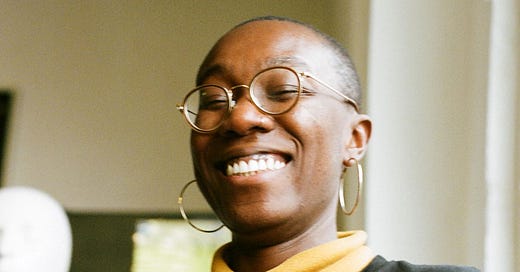Welcome back to Music Is The Answer, a fortnightly newsletter from myself Marcus Barnes.
Before we get into this edition, a couple of things: 1) I will be sharing another edition of the newsletter this coming Monday, which will feature my techno reviews, an archived interview + a whole bunch of recommendations. I wanted to keep today’s one focused so you’ll have to wait until after the weekend for my usual content. It’s worth it though, trust me.
2) I just wanted to remind you that the best ways to support this newsletter are to share it, speak about it, direct people to it and, if you have time, interact with it.
I’ve really enjoyed getting people’s responses to the last few editions, it’s encouraging to hear how my writing has been received, and nice to be in touch with some old faces, too!
Use this neat little share button if you fancy spreading the word…
Let’s Hope The Open Letter Leads To Open Minds… And Open Hearts
It’s been almost two weeks since R.O.S.H. published his open letter to RA (and the UK music press). As most of you know, I helped edit the mammoth text just before it went out and I’m proud to have played a tiny part in such a hard-hitting, critical piece of writing that did such an amazing job of summarising the systemic oppression of London’s Black working class electronic music scenes.
The most common words that popped up when it was shared were ‘essential’, ‘vital’, ‘important’ - a lot of people were blown away by the sheer depth of work that went into it. And a lot of Black people finally felt as though some had, at last, articulated their lived experience in a stark, compelling manner. So big ups to Rosh.
Over the past week I’ve been in touch with a number of Black people who shared the letter on Twitter. My aim was to find out how the letter made them feel and what they thought of Rosh’s suggestions as to how we can start to dismantle/reimagine parts of the broken system to make it fairer for everyone.
I’m fortunate enough to have quite a prominent voice in this industry, so it didn’t make sense for me to write a post about my own thoughts and feelings. This special edition has been created for the purpose of elevating the voices of those who may not always be heard… so please take time to absorb their words and really hear what they are saying.

Name: Tracy
Age: 26
Occupation: Student/DJ
Where can people find out more about you? Probably on Twitter @fave_dad, or if they accidentally bump into me in Manchester
“I thought it was really good that Rosh contextualised the continuous whitewashing that has happened in music journalism. However, it did make me feel quite sad when he suggested that it is highly unlikely that RA will have a geographically representative mixed audience again. As the website has such a large platform, I think it's really important that articles are written a way in which people from different strokes of life can relate to it. Blogs like Truants do a really good job of it and I think that RA would really benefit if they took a similar approach.
I really liked the bit where he talked about how Black music has been co-opted into whiteness. His Ben UFO example was very accurate and another example I can think of is RA's review of Enzo Siragusa's set at Gottwood last year. Both examples show that if it's not done by a Black person or if it doesn't include elements of Blackness (like an MC on stage), it's great and it deserves glowing reviews. I think that's a really narrow (and lazy) way of looking at things and doesn't consider the breadth of artists and general artistry that goes into dance music. Then again, the open letter highlights that these narrow perspectives are a reflection of the journalists' backgrounds and the ways in which they discover new mixes, parties and other things (e.g. through publishers, moving amongst similar circles, etc.).
Overall, I thought the open letter was very educational. I didn't know the impact that genres like UK Funky had on modern dance music and I'm really glad the letter taught me more about it. I didn't know about the number of Black clubs that closed in London around the time Fabric closed and I'm quite interested in finding out what that number is like across the country, especially in areas where there are large Black and working class communities.
I thought his suggestions were great. He said that they were radical but I think that they're necessary! The revolving door between publicists, journalists and artists isn't fair because it makes it very difficult for people outside of these circles to get a foot in. I also think the revolving door makes coverage really boring and doesn't consider the ever-evolving nature of dance music. Getting rid of this barrier that contains silly unwritten rules could allow artists and promoters from BIPOC backgrounds to finally come to the forefront. Most people are already subscribed to big artists, labels and promoters on social media so I don't think they need extra promo!
I'm also a big fan of open submission because it works. Websites like Gal-Dem do it and I think this approach is definitely to their credit. Their website includes an array of articles from different people that offer a range of perspectives. It keeps things interesting and it's incredibly educational.
However, this suggestion is my favourite:
To represent the length of breath that electronic music takes in a variety of scenes and locations, a shared understanding between writers is a waste of labour resources. Hiring BIPOC staff that share the same viewpoints and touchstones on the scene as their white counterparts, or replacements, and calling it job done will bring little benefit. It's important that new hires come from communities with a vastly different perspective and outlook. If they can't name one track from Call Super’s catalogue that's a good thing.
I think that this perspective can be applied to venues as well, and the bookers they hire. We can only truly be 'representative' and platform people if we include people that think differently to the status quo. This would consider the changing nature of dance music and the impact it has on different communities across the city. It's really necessary for RA and other music publications to actively reach out to people beyond Doors Open. Let's be really honest here: how are you going to get different perspectives if you're advertising roles to your predominantly white, middle-class following? It's weak! They can start having actual representatives go to local community stations, especially those that have a diverse following. It's important to let people know what RA is and inform them about what they can offer. This could encourage people to submit open submissions and apply for roles where they can bring loads to the table.”
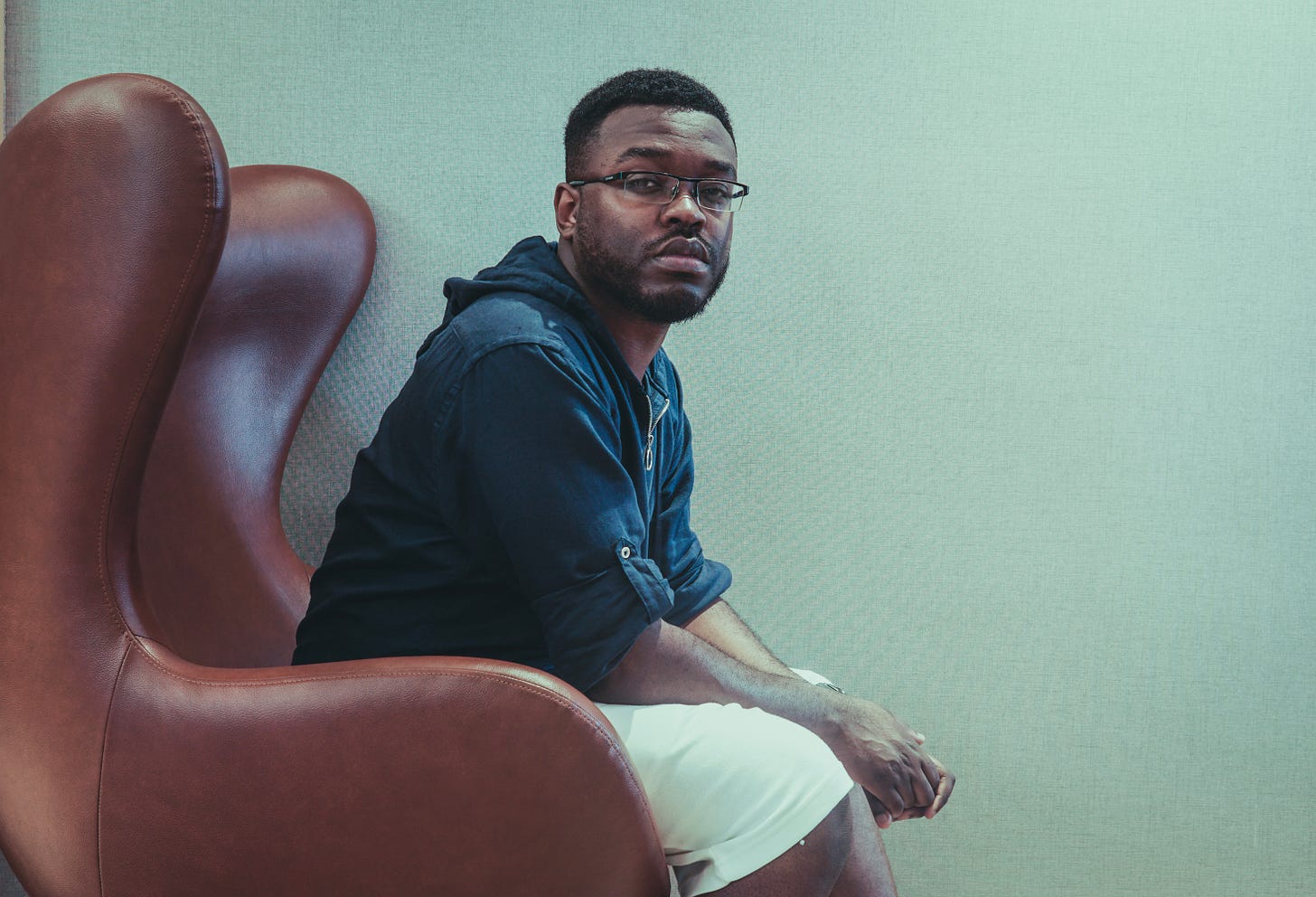
Name: Sef Kombo
Age: 35
Occupation: DJ and A&R
Where can people find out more about you? Head over to my Soundcloud and Facebook.
“When reading the letter, I was really taken aback at how serious this non-recognition of the existence of our culture really was. I just was trying to find a way to understand how this could happen, and for so long. I couldn’t fathom one. I mean, I was totally aware that this was happening and I guess by almost switching off from it, by not constantly reading publications and mostly concentrating on working on my own craft and my scene, I didn’t know it was to that extent over such a long period of time. Really shocking.
The suggestions are good and challenging. We don’t have all the answers but to pinpoint and accept the failings is a good start. Rosh and many of us still concede that publications can write what they want, it’s theirs after all, but at the same time you can’t always speak on the roots of the music and not speak on where the roots have grown to and document those branches as they’re growing.”

Name: Danielle Koku
Age: 22
Occupation: Freelance journalist
Where people can find out more about me: Follow me on Twitter @baithoeven and check the links here: linktr.ee/danizuko
“Most of all, when I read the letter, I felt heard. In a sense that it made me feel a bit more understood. For example, when we could still go out, I’d be in the club with my friends and all the DJs would be white. I’d be thinking, ‘I know for a fact that Black DJs spin this kind of music at block parties so how come there’s such a disconnect here?’ There’s just a disconnect between the music you grew up with, knowing that everyone involved in making it was Black, yet you’re in a club with white people screaming it, listening out for anyone shouting the n-word. Writing about music is one of those places where those differences become painfully apparent. I really related to the part where he took a quote from Oblig talking about where you have to talk to people in a certain way. Because the majority of music editors are white, even when you’re pitching you feel like you have to explain how a certain artist is popping in a way that they’ll understand without compromising the integrity of what you’re pitching. It’s a juggling act and it almost feels like you’re trying to prove yourself. Of course, a lot of editors are great, but that’s one of the main reasons why sometimes I don’t even pitch. I’d rather listen to the music and enjoy it than have to feel like I need to tweak and rewrite things in a way that I don’t actually want to do. It feels so awkward sometimes.
As a writer, I feel like we’re quite inclined to say, ‘Well no, of course you have to talk about things “properly” otherwise how else are people going to capture it in their minds?’. We’re very inclined to defend certain archaic things and ways of using language, but we have to remember those practices are what keep certain people out of the room. I did agree with the suggestions and I think a lot of people who read them will agree and see them as necessary but the irony in that is; if all these suggestions are necessary, a lot of people need to quit their jobs! That’s the real of it. We can all say, ‘This is great, this is great’ but like, yeah ok? I’m not saying every white editor should quit their job but if this is something that people aren’t really willing to commit to then they need to question if they should be working at certain places or have certain powers. The music industry is going through this phase where they’re all like, ‘We’re so up for recognising Black people’ and you just want to @ them and ask, ‘How many Black staff do you have? How many Black interns do you have?’ Sometimes you just want to say, ‘Can you just do what you’re talking about?’ It isn’t just about Black people, it’s about everyone.
PR is a really funny one, because I can count on one hand that amount of times I’ve genuinely read something from a PR and said, ‘Wow, I’d really like to pick this up and write about it’. I know so many people who work in PR and they write great press releases, they’re great people and lovely to speak to but there has to be a new way to do PR. My inbox on a Friday morning is just disgusting because of music PR, it’s become stale. If there was a new, more progressive and accessible way to do PR, it would be way better for everyone.”
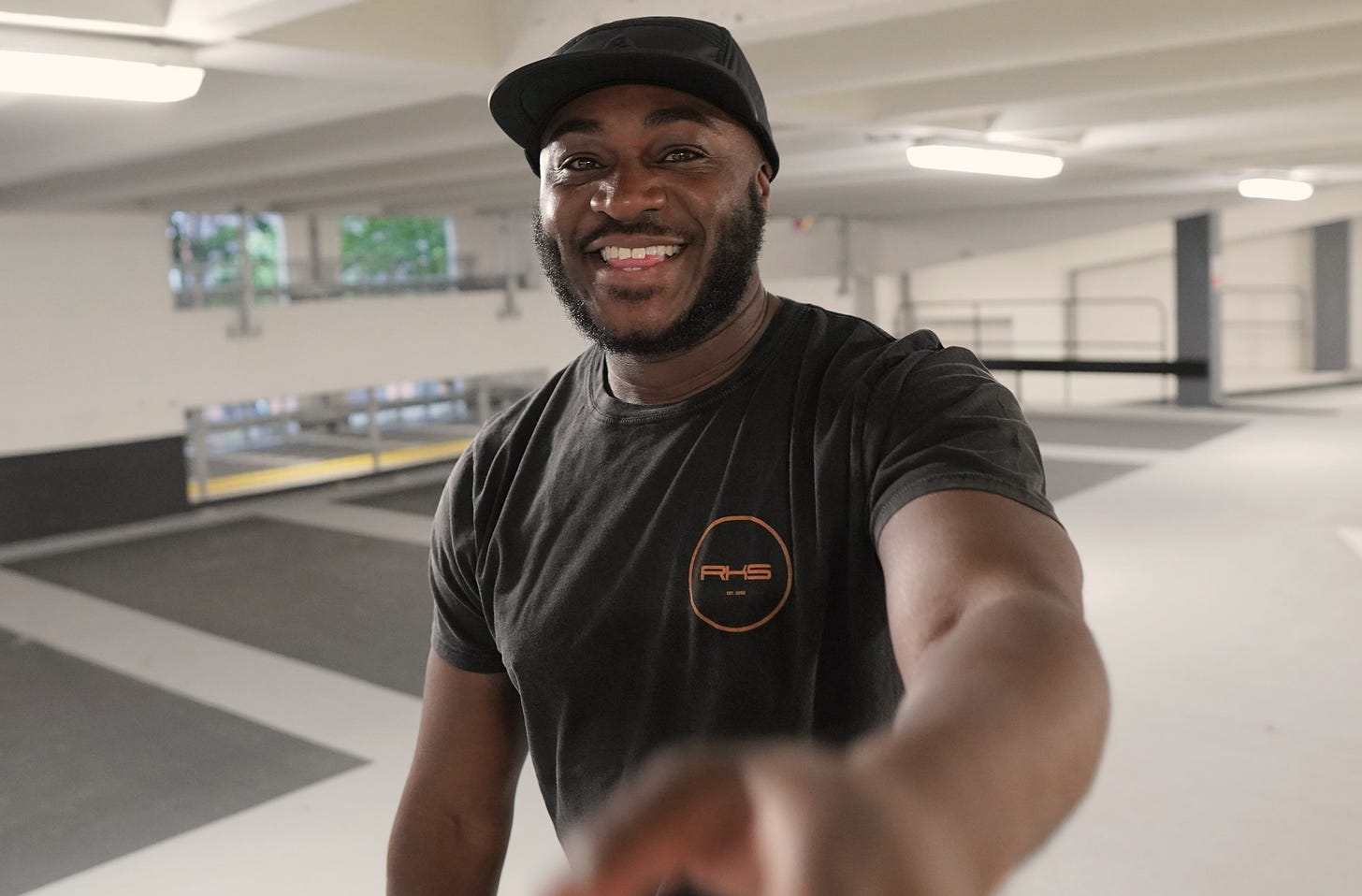
Name: Wayne/Roska
Age: 37
Occupation: Musician
Where can people find out more about you? RKS catalogue
“The one thing I’d say it definitely made me feel was, ‘Finally someone outside the Black community can articulate something we’ve all been feeling… maybe even better than someone in the Black community’. It’s good that someone can come out and say what they’ve got to say, in so much detail as well. It was a great read, and something that needed to be said. Where I don’t think people are really listening to us, as Black people, someone else need to say it as well. We need that support. It made me feel a bit funny because I’ve been seeing this, I’ve been witnessing this, but who do you tell? Because these guys [some of the journalists named in the letter] are hearing what you’re saying, they’re seeing it, but they’re blocking you. It’s like they’re waiting for you to step out of line so they don’t have to publicise your product and your being, your existence and what you do in music. I’ve been in and out of Resident Advisor for years and at some point I was like, ‘F**k ‘em! I don’t need to be in this bloody thing because you’re a bunch of c**ts’. But, at the same time, I know what it can do for your career, it can help you. It’s like they know it. If they say something shitty about you, it works in their favour. I’ve had this back and forth with Andrew Ryce so many times, to the point where, when I was on tour I told him to come down and we’ll talk on a level. And on a level he’s cool, but he’s a prick when he writes. That’s because he knows how to press buttons when he’s online. He’s an internet troll.
My thing, on his suggestions, was, yeah it needs to be restarted. When I first started releasing music I was being covered, back then it was easy to get noticed because people were receptive to talking about you because you were new. Two years after that, 2010, my album came out and I was flying, doing everything, crazy stuff; Mary Anne Hobbs on Radio 1, Sonar Festival, Essential Mix, Glastonbury - then 2011 hit and it got tough, I’d hit the ceiling in terms of what they wanted me to get to. When you look at it there’s a massive problem because these other guys [his white peers], they’re still flying and they’re hardly doing anything. You notice there are systems in place that are set up to stop you, so yeah everything needs to restart. They need to really rethink what they’re actually doing. It’s really important, it’s really important… it’s really important. People ask me, ‘Why don’t you do any PR?’. I don’t want to, I want to talk to the people that follow my music and keep it like that. It gets to the point where I’m like, ‘Do I want to try and get these bits of press and be disappointed because no one’s gonna let you in like that? Or do I just keep my head down and carry on and don’t let it get to you?’ It is a tough one. There just needs to be a bit more respect. The mark up between PR, releasing music and breaking even is ridiculous. The artist will end up in debt. There’s a disconnect there because you could spend three grand on a promo and end up with absolutely nothing back, or in minus. When you put your pennies in one basket, especially with promo, you expect it to elevate the music or, even better, introduce the music to a new audience. It’s difficult and you think about maybe cutting it out altogether and approaching people directly, but then it’s a whole other job on top of what you’re already doing.
It’s crazy, even talking about it now. It’s surreal to know that opportunities have been taken away based on who I am and what I am and what I look like. It’s very tough. I’ve been talking about it for a few weeks now and you start to question it like, ‘Rah, do you hate me that much?!’. What have I exactly done for you to really and truly hate me, or do you just need a reason to? But I’ve got absolutely nothing to lose now, so if anyone steps out of line, I’m grilling them. It’s mad though because I know a lot of genuine white people and I can see it’s hard for them to talk about it, or to even know what to say. There’s a thing where it is really difficult and you’re trying to find the right words to say. But there are others who are maintaining the status quo and I will call them out. There are a lot of people who were coming through and weren’t treated right because of the way the system is set. But I can see change coming. If you’d have spoken to me a few weeks I would have said nah, but I’m feeling positive now that change is coming.”

Name: Sean
Age: 29
Occupation: Writer
Where can people find out more about you? Follow me on Twitter @vonpiffen
“Depressed, vindicated, and cautiously optimistic probably sums it up best. It's a great piece of writing obviously, a long, sobering look behind the curtain of white privilege and resultant Black erasure in dance music, with cold hard facts via data for any dickhead who thinks phrases like "meritocracy" and "conspiracy theory" still apply here. But it didn't appear in a vacuum. People have known about and suffered from these problems of whitewashing, revision by omission, and "passive" but extremely active blacklisting [practices] for years and years now. And it's 2020, and there's a lot going on. Awareness is great to a point, but we need changes and solutions rather than conversations, think-pieces and all the rest. At the same time anything fuelling the whole destroy and rebuild, bin the establishment wave is appreciated. Chaos is a ladder etc.
I'm not a DJ/producer so I can't speak to certain suggestions like the dissolution of communication agencies. I'm barely a writer tbf but yeah they all sound good to me. I'd also like to see more ownership and collectivism in both music and journalism industries. People banding together and working horizontally for a better, less reliant culture, rather than waiting for a bailout, ally, initiative or whatever. And it's been happening. Black radio. Black labels. Black booking agencies. Black editorial.”
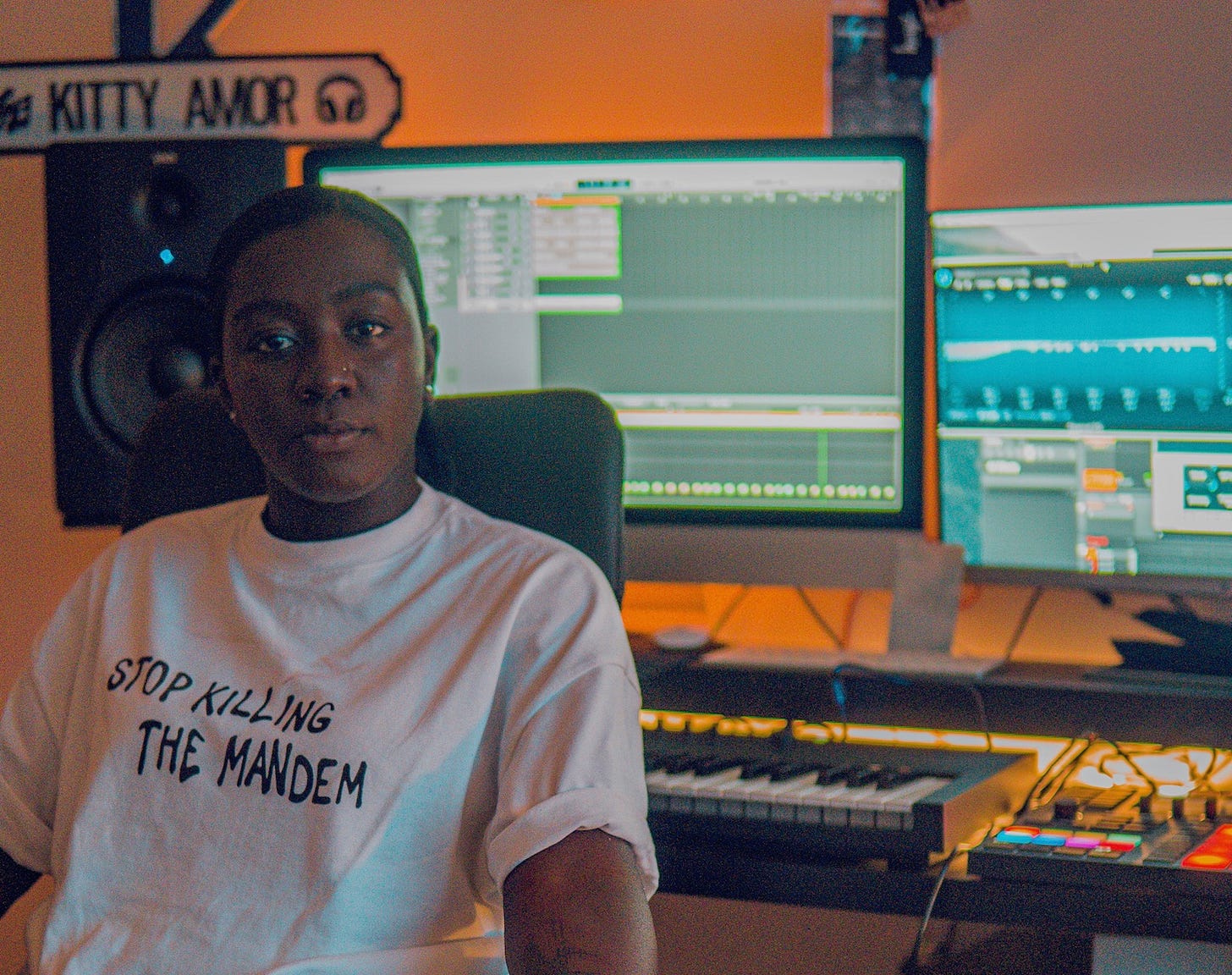
Name: Kitty Amor
Age: 30
Occupation: DJ/Events Owner
Where can people find out more about you? My website - www.kittyamor.com or across all socials - Facebook, Instagram, Soundcloud, Youtube - search for DJ Kitty Amor
“On first reading the letter I was just hearing my own thoughts and background knowledge being echoed. However, when I saw the figures comparing total coverage I started to feel anger. Seeing the table listing over 40 club nights (either headed by Black promoters or with a large proportion of Black ravers) that were held in clubs which have been shut down for licensing or redevelopment is infuriating. In the resurgence of some of these clubs, many of these events have not been re-housed - gentrification of the nightlife speaks volumes here.
The fact that I have always thought, when reading RA, ‘Why is it any that any sort of coverage of a Black DJ/producer, is either Carl Cox, Kerri Chandler or Jeff Mills and no others?’ As if they are the only press-worthy DJ/artists that tick the diversity box. Oh, and when the after-thought "Black female" quota needs to be filled then it's only Honey Dijon that fills that wide space. I have previously felt very discouraged from pitching or approaching RA in a respectful manner to get coverage of the work in our scene, as we are only valued when it comes to adding to their revenue from our events listings with no interest in the success of these events.
All [of Rosh’s] suggestions are very much needed and something that has been our scream for many years. The need to go Black and go wide in all niche music genres in the UK is a desperate desire. PR companies can often be very lazy in what they give coverage, as it is viewed that something needs to be hitting at least over 10K in streams or views, when everyone has been posting it non-stop for a week or two, before online magazines ever give it coverage. At the point the coverage is given, the sound has already existed and created a real movement at least two years before they get their hands on it. Move quicker, have better representation from the boards right to the stories being shared, and promote better conveyance from magazines, podcasts, streams, radio to live via festivals, tours, events etc..”
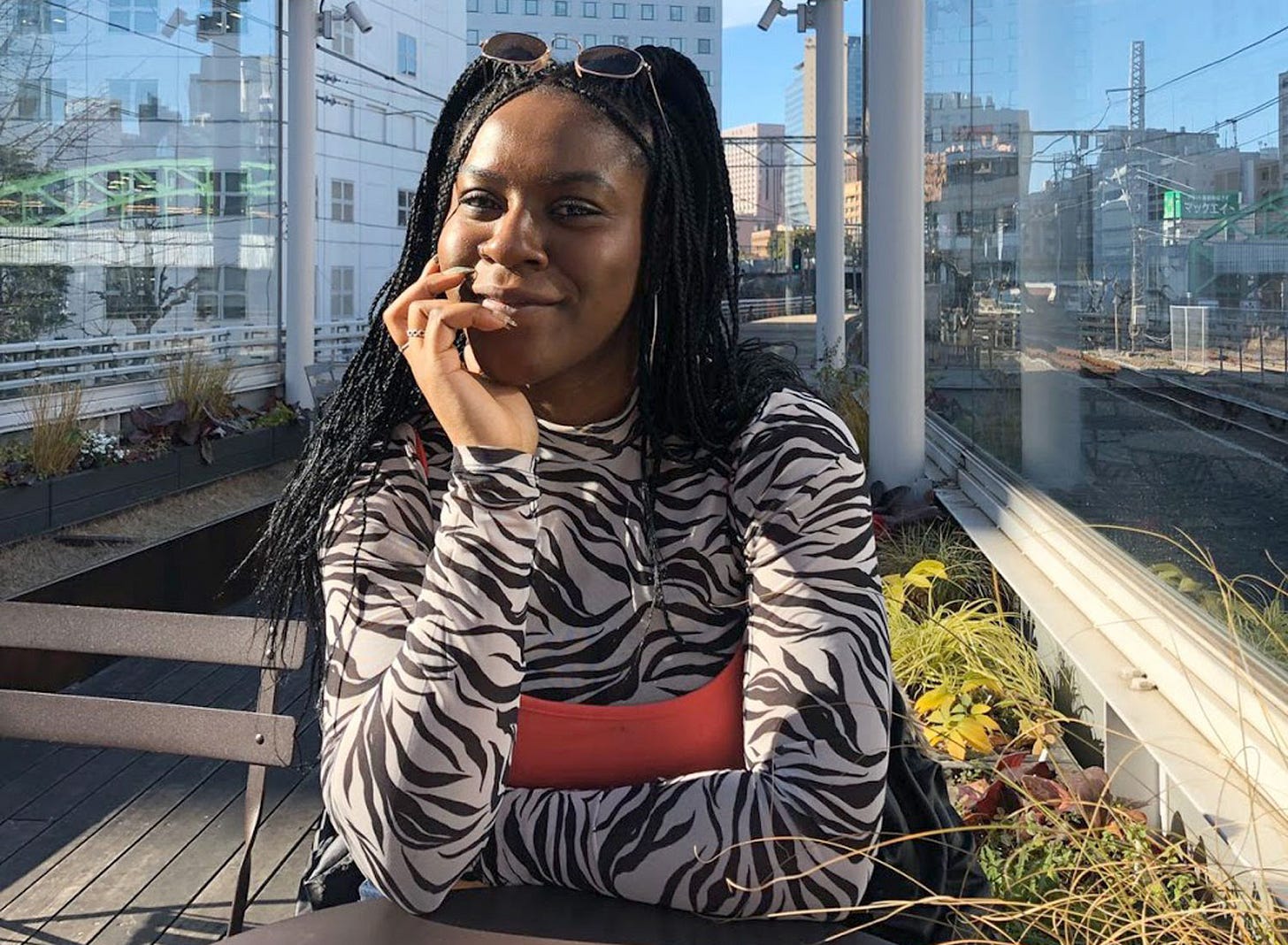
Name: Timi Sotire
Age: 21
Occupation: Freelance journalist
Where can people find out more about you?: RTing nonsense on my Twitter @timshotaya, feel free to see what I’ve been writing at lnk.bio/zPV9
I honestly just felt relieved that this was being spoken about to a wider audience. As a black person into dance music, what Rosh was saying wasn’t news to me. At most of the club nights I’ve attended, I’ve been one of the few Black people in the room, even when there are Black DJs on the decks playing genres like gqom, footwork and afro-house. The confusion surrounding why this was the case led me to research the history of the UK club scene, and when I found out about the violent racism that underpins the UK music scene, everything made sense. My case isn’t even unique or anything; for many black people, our awareness of the historical whitewashing underpinning UK dance music stems from the frustration surrounding our experiences with club culture.
It was the part on how wider society affects the nightlife industry that really spoke to me, especially when Rosh said: "Austerity, gentrification and policing go hand in hand.” For many of us, UK nightlife acts as a form of escapism, granting us the ability to flee from any form of ostracisation and marginalisation in the outside world. But this does not mean that it is free from external societal influence - it is naive to think that existing inequalities and biases don’t infiltrate into UK nightlife. For black people, the criminalisation and subjugation we face in the outside world is extended to our experiences of the club scene. Unfortunately, the UK press works in tandem with these forces: as the state takes our property and culture away from the black community, the UK music press actively erases our impact and role in shaping UK club culture. It’s great that attention is being drawn to all of this.
I liked the ‘Go Black & Go Wide’ section. I agree that there needs to be a mass restructuring of the editorial landscape as we know it. What’s the point of hiring more black people if they listen to the same music as those at the top? That does nothing to challenge the whiteness that shapes the UK music press as a whole. Hiring BIPOC that have had to train themselves to fit into the established idea of what counts as ‘official’ or ‘mainstream’ in UK dance music isn’t as radical as you think!
I hope that this newfound knowledge gained by the wider dance music community results in tangible action. What I would like to see is something similar to the #PullUpOrShutUp campaign in the beauty industry: individuals and organisations in positions of influence need to tell us where they need to improve, and how they are going to do the work to ensure that they really do improve. As consumers of their content, and fans of dance music, we need to hold them accountable. But ultimately, the main responsibility falls on them: they need to be transparent, and should already be laying the groundwork for making lasting, systemic change.

